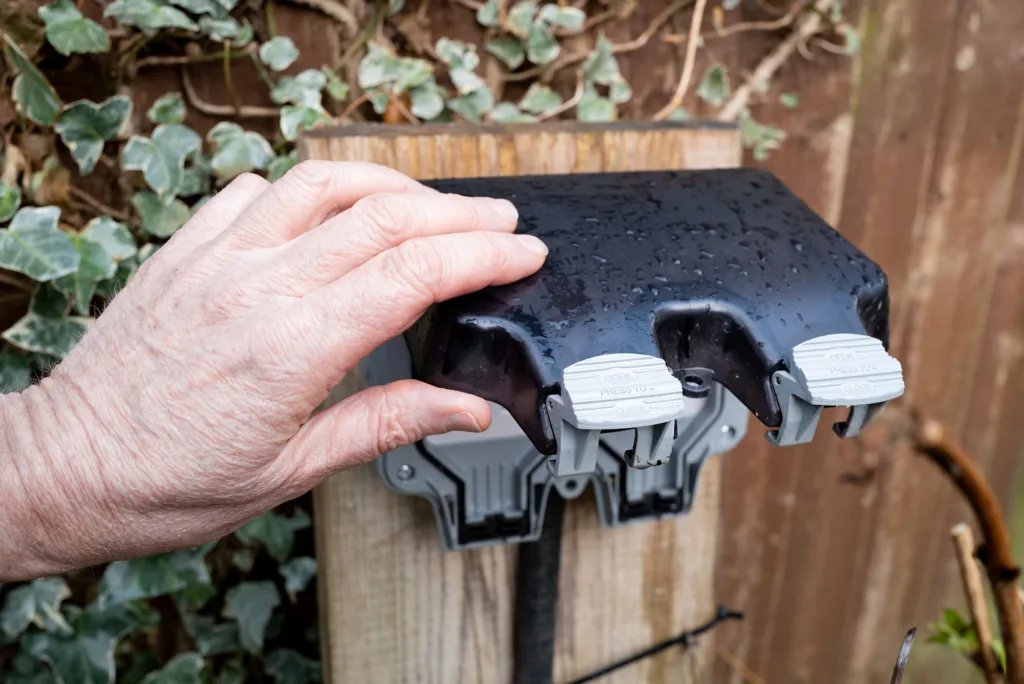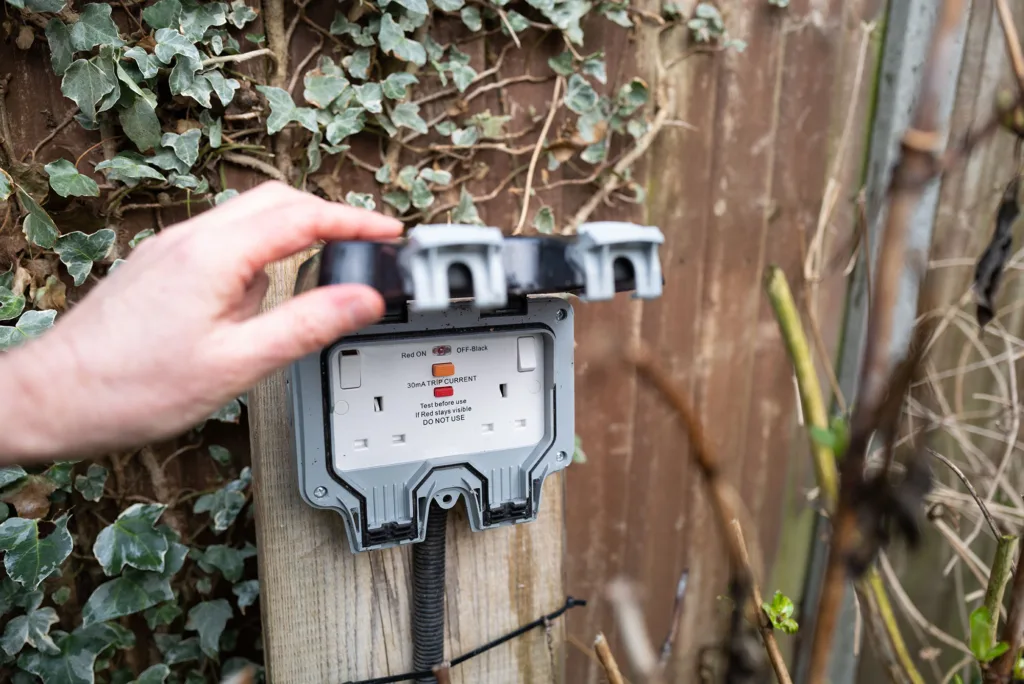The great outdoors can be the perfect extension of your home, but have you ever considered how the right electrical outlets can transform your garden space? Whether you’re looking to install garden lights, power a water feature, or set up an outdoor kitchen, selecting the appropriate outlets is crucial—especially in a region like Cornwall, where weather conditions can be unpredictable. But how do you make the right choice without compromising safety? That’s exactly what we’ll cover in this guide.
Why Outdoor Electrical Outlets Matter for Your Cornwall Garden
Outdoor electrical outlets aren’t just about convenience. They ensure that you can power outdoor equipment and appliances safely and efficiently. Beyond practical reasons, choosing the correct outlets can prevent electrical hazards and unnecessary maintenance costs.
Enhancing Safety and Functionality in Your Garden
Having multiple outdoor outlets eliminates the need for long extension cords, which are not only unsightly but also pose significant safety risks. Properly positioned sockets mean you can run garden tools, charge electric lawnmowers, and light up pathways without tripping over cables.
For detailed lighting ideas, check out our Cornwall Gardens Lighting Installation Tips. It offers practical advice on positioning garden lights and installing them safely, ensuring your space is as functional as it is beautiful.
Meeting Local Electrical Standards and Regulations
Outdoor electrics in the UK must adhere to strict regulations, including the BS 7671 standards. This means that all outdoor outlets should have RCD (Residual Current Device) protection to prevent electric shocks. You can find more information on these standards from reputable sources like the Electrical Safety First website.
Key Factors to Consider When Selecting Outdoor Outlets
Weatherproofing and IP Ratings
Weatherproofing is one of the most critical considerations when selecting outdoor outlets, as Cornwall’s climate can range from heavy rainfall to salty sea breezes. Look for outlets with a minimum IP44 rating, which offers protection against water splashes and solid particles larger than 1mm. If your outlets are exposed to more extreme conditions, such as heavy rainfall or direct hose exposure, opt for IP66-rated outlets for enhanced protection.
Material Durability and Corrosion Resistance
The materials of your outlets and covers should be resistant to corrosion. Stainless steel and polycarbonate are excellent choices due to their durability and ability to withstand harsh environmental conditions. These materials will ensure that your outdoor electrical components last longer without rusting or degrading.
Number of Outlets and Placement
Carefully consider the number of outlets you need and their placement. Position them in accessible locations to reduce the use of extension cords, and plan ahead for additional outlets if you intend to add more electrical features in the future.
For installation advice or to check out our services, visit the Outdoor Electrics Service Page. Our experienced professionals can guide you on the best placement strategies for your garden.

Types of Outdoor Electrical Outlets Suitable for Cornwall’s Weather
RCD-Protected Outlets for Added Safety
RCD-protected outlets are essential for any outdoor installation. They automatically disconnect the power in case of an electrical fault, making them crucial for preventing electric shocks. Ensure that all your outdoor outlets have RCD protection, especially in a moisture-prone environment like Cornwall.
GFCI Outlets: Importance and Benefits
GFCI (Ground Fault Circuit Interrupter) outlets function similarly to RCDs, cutting off the power in the event of an electrical fault. They are typically required for any external socket installations. Both GFCI and RCDs offer added layers of safety and are often required under the UK Building Regulations.
Smart Outlets for Automated Control
If you’re looking to upgrade your garden’s functionality, consider installing smart outdoor outlets. These sockets can be controlled remotely using a smartphone app, making it easier to switch devices on and off, set schedules, or monitor power usage.
Outdoor Plug-and-Play Systems for Portable Use
These systems are perfect for temporary setups like garden parties or seasonal decorations. They include extension leads and multi-outlet adapters that are weatherproof and allow you to connect multiple devices. However, always ensure these are unplugged after use, as leaving them outdoors for prolonged periods can reduce their lifespan and increase the risk of damage.
Installation Considerations for Outdoor Outlets
Ensuring Proper Grounding and Circuit Protection
Proper grounding is crucial for outdoor outlets. Incorrect grounding can lead to severe safety hazards, including electric shocks. Make sure that all outlets are properly grounded and have surge protection to handle fluctuations in the power supply.
Installing Weatherproof Covers and Enclosures
Weatherproof covers are vital in preventing moisture and debris from entering your outlets. Invest in outdoor outlet covers that can be sealed properly to prevent any moisture ingress, even when devices are plugged in. Ensure the cover fits tightly and provides adequate protection, particularly in exposed areas.
Mounting Height and Accessibility
The height at which outdoor outlets are installed plays a crucial role in usability and safety. They should be placed at a sufficient height to prevent water splashes during heavy rains but low enough to be easily accessible for regular use.
Safety Tips for Using Outdoor Electrical Outlets
- Regularly inspect your outlets for any signs of wear or damage, such as frayed wires or rusted components.
- Avoid overloading outlets with multiple high-wattage devices, as this can lead to overheating and potential fire hazards.
- Use dedicated outlets for high-wattage appliances, such as electric lawnmowers or heaters.
- If you’re unsure about installing or maintaining your outdoor outlets, always consult a professional. For more details, you can reach out to us via our Contact Page.
Never ignore moisture issues, as even the smallest amount of water inside an outlet can cause significant problems. Check for signs of water ingress, particularly after heavy rain, and replace any damaged outlets promptly.
FAQs
1. What are the most important safety features to look for in outdoor outlets?
Look for outlets with RCD protection, high IP ratings, and robust materials like stainless steel. These features will ensure the outlets can withstand weather conditions while maintaining electrical safety.
2. Can I install outdoor sockets myself, or should I hire a professional?
While minor installations like replacing an outlet cover can be done DIY, installing or replacing outdoor outlets should ideally be done by a certified electrician. They ensure compliance with local electrical codes and handle complex wiring.
3. How often should outdoor electrical outlets be inspected for safety?
Outdoor outlets should be inspected at least once a year to check for any signs of wear, corrosion, or damage. Regular inspections are especially crucial in areas with harsh weather conditions like Cornwall.
Conclusion
Choosing the right outdoor outlets for your garden involves more than just picking a socket and plugging it in. From weatherproofing to ensuring safety compliance, there are numerous factors to consider to create a functional and secure outdoor space. By following the guidelines mentioned above, you can enhance your garden’s functionality while ensuring it remains a safe environment for family and friends.










